FXR Regulates Intestinal Cancer Stem Cell Proliferation
- PMID: 30794774
- PMCID: PMC6701863
- DOI: 10.1016/j.cell.2019.01.036
FXR Regulates Intestinal Cancer Stem Cell Proliferation
Abstract
Increased levels of intestinal bile acids (BAs) are a risk factor for colorectal cancer (CRC). Here, we show that the convergence of dietary factors (high-fat diet) and dysregulated WNT signaling (APC mutation) alters BA profiles to drive malignant transformations in Lgr5-expressing (Lgr5+) cancer stem cells and promote an adenoma-to-adenocarcinoma progression. Mechanistically, we show that BAs that antagonize intestinal farnesoid X receptor (FXR) function, including tauro-β-muricholic acid (T-βMCA) and deoxycholic acid (DCA), induce proliferation and DNA damage in Lgr5+ cells. Conversely, selective activation of intestinal FXR can restrict abnormal Lgr5+ cell growth and curtail CRC progression. This unexpected role for FXR in coordinating intestinal self-renewal with BA levels implicates FXR as a potential therapeutic target for CRC.
Keywords: BA-FXR axis; Lgr5(+) intestinal stem cells; colon cancer progression; genetic and dietary risk factors.
Copyright © 2019 Elsevier Inc. All rights reserved.
Conflict of interest statement
DECLARATION OF INTERESTS
S.F., C.L., R.T.Y., A.R.A., M.D. and R.M.E. are co-inventors of inventions related to certain FXR agonists.
Figures
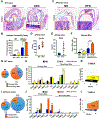
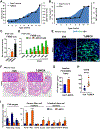
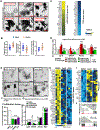
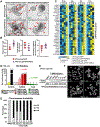
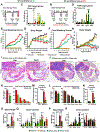
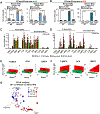
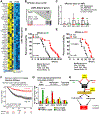
References
-
- Aguirre-Gamboa R, Gomez-Rueda H, Martinez-Ledesma E, Martinez-Torteya A, Chacolla-Huaringa R, Rodriguez-Barrientos A, Tamez-Pena JG, and Trevino V (2013). SurvExpress: an online biomarker validation tool and database for cancer gene expression data using survival analysis. PLoS One 8, e74250. - PMC - PubMed
-
- Barker N, Ridgway RA, van Es JH, van de Wetering M, Begthel H, van den Born M, Danenberg E, Clarke AR, Sansom OJ, and Clevers H (2009). Crypt stem cells as the cells-of-origin of intestinal cancer. Nature 457, 608–611. - PubMed
Publication types
MeSH terms
Substances
Grants and funding
LinkOut - more resources
Full Text Sources
Other Literature Sources
Molecular Biology Databases

